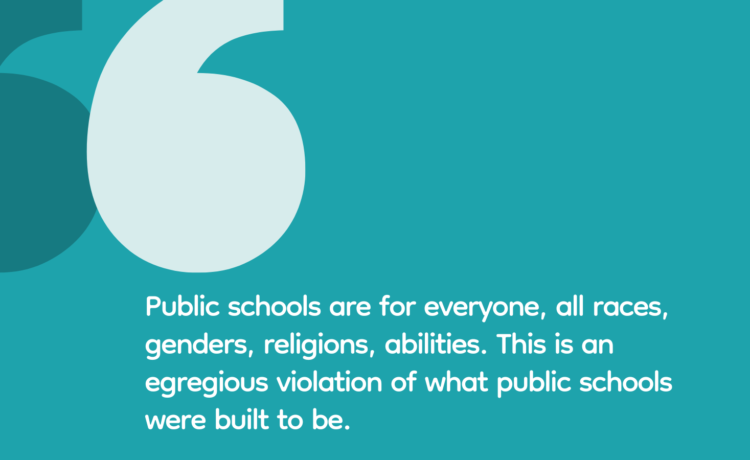
In a controversial move yesterday, Louisiana has become the first state in the nation to require that the Ten Commandments be displayed in every public classroom. This move has ignited debate across educational and legal circles. Signed into law by Republican Governor Jeff Landry, the mandate covers all educational institutions receiving state funding, from kindergarten age to college universities.
A closer look at House Bill 71
The newly signed bill specifies that each classroom must exhibit a poster-size display of the Ten Commandments in a “large, easily readable font.” The legislation details the biblical commandments’ language, stressing that the religious text must be the poster’s central focus. Governor Landry, expressing his support for the bill, remarked:
If you want to respect the rule of law, you gotta start from the original law given which was Moses… He got his commandments from God.
However, significant opposition has actively challenged this state-led initiative. Critics argue that mandating a religious text in public schools infringes upon the establishment clause of the U.S. Constitution, which prohibits any law “respecting an establishment of religion.” Civil liberties groups, including the American Civil Liberties Union and Americans United for Separation of Church and State, have announced plans to challenge the law. They contend it violates Supreme Court precedent and results in “unconstitutional religious coercion of students.”
What teachers are saying about House Bill 71:
This law certainly has teachers talking. Here’s a selection of responses from Instagram where we posted the news:
“Public schools are for everyone, all races, genders, religions, abilities. This is an egregious violation of what public schools were built to be. Also, Louisiana ranks 49th in public education for a reason. Their government is more worried about passing this nonsense than actually funding schools and improving education.” —@missaimeemd
“I teach in a Louisiana public school and I’m furious, confused, embarrassed, all the things. Some leaders believe this law will solve issues, but most aim to boost their image and gain more power.” —@sewlil
“If your version of Christianity wants to put the Ten Commandments in schools but take free lunch out of them, you are worshipping something other than Jesus.” —@ZachWLambert
“Can someone explain to me how putting a rainbow in a classroom is ‘indoctrination,’ but the Ten Commandments isn’t?” —@Logically_JC
“‘When I was hungry’ you put up posters of the Ten Commandments in my classroom while making sure I didn’t get lunch at school.” —@Brcremer
What should teachers know?
For educators in Louisiana, this new law presents a challenge. While supporters of the bill cite the 2022 U.S. Supreme Court decision in Kennedy v. Bremerton, which allowed for private religious expressions in public settings, opponents see this as a clear violation of the separation of church and state. Teachers are now in a delicate position, navigating legal and ethical issues while fostering a respectful environment for all students. All the hats teachers wear? Add “navigating religious conversations” to the list.
Strategies for navigating this new terrain might include:
- Professional development: Educators may benefit from sessions that address legal insights and strategies for handling religious topics sensitively in diverse classrooms.
- Community engagement: Opening dialogues with parents and community leaders can help manage varied perspectives on the mandate and promote a balanced educational environment.
- Legal awareness: Staying informed about the ongoing legal challenges and understanding the implications of the law is crucial for educators to protect themselves and their students.
As this law takes effect, the role of Louisiana teachers becomes even more pivotal. Louisiana teachers face the challenge of implementing a deeply personal, now legal policy amid public scrutiny and personal beliefs. As debates unfold, teachers must balance legal compliance with their commitment to maintaining a respectful and inclusive classroom environment.
This law’s outcomes will likely resonate beyond Louisiana, influencing policies nationwide like other contentious issues. Teachers, now more than ever, must police the dialogue about how public education and religious practices intersect in America. What ridiculous thing are we going to put on teachers’ plates next?















